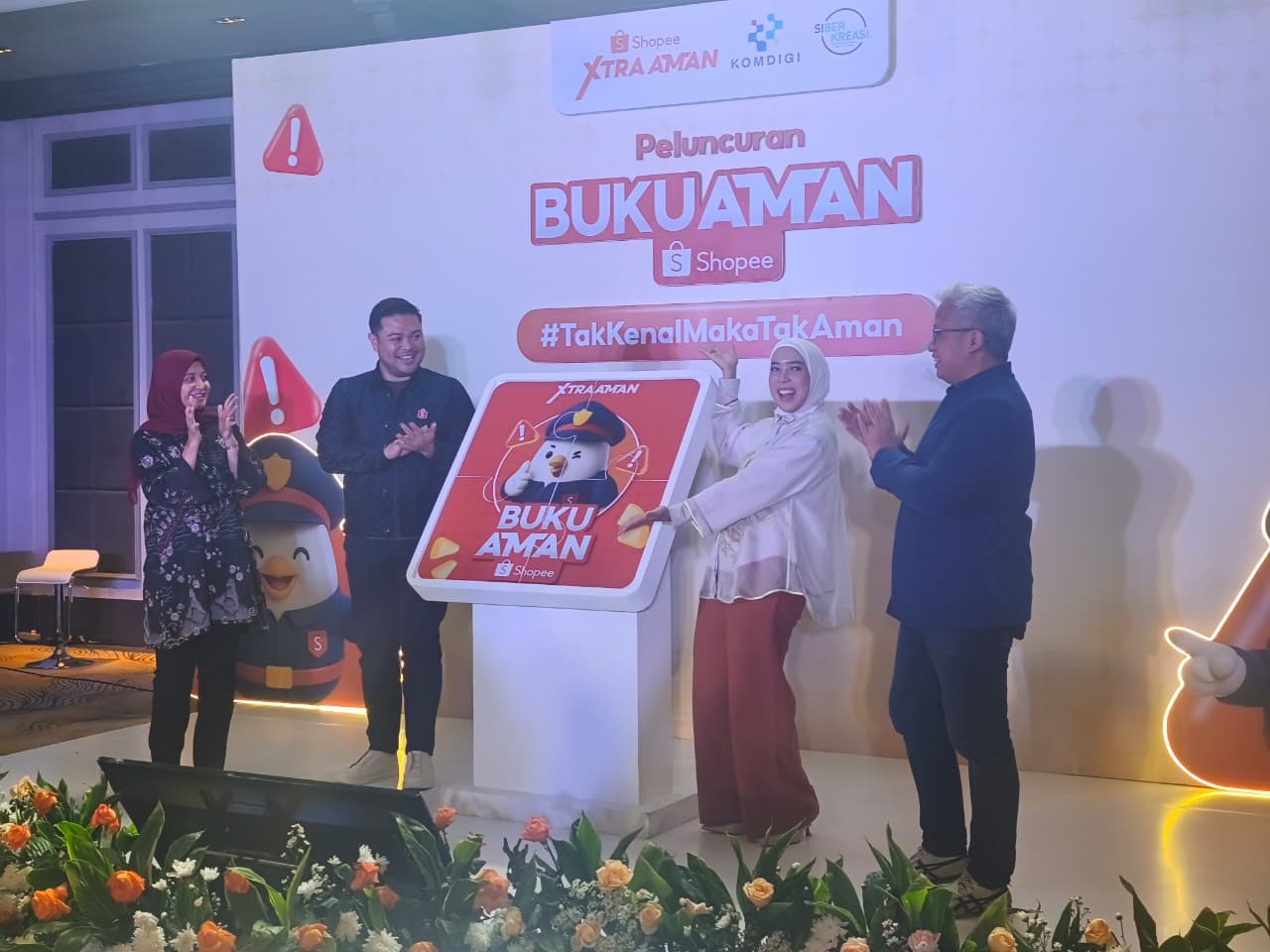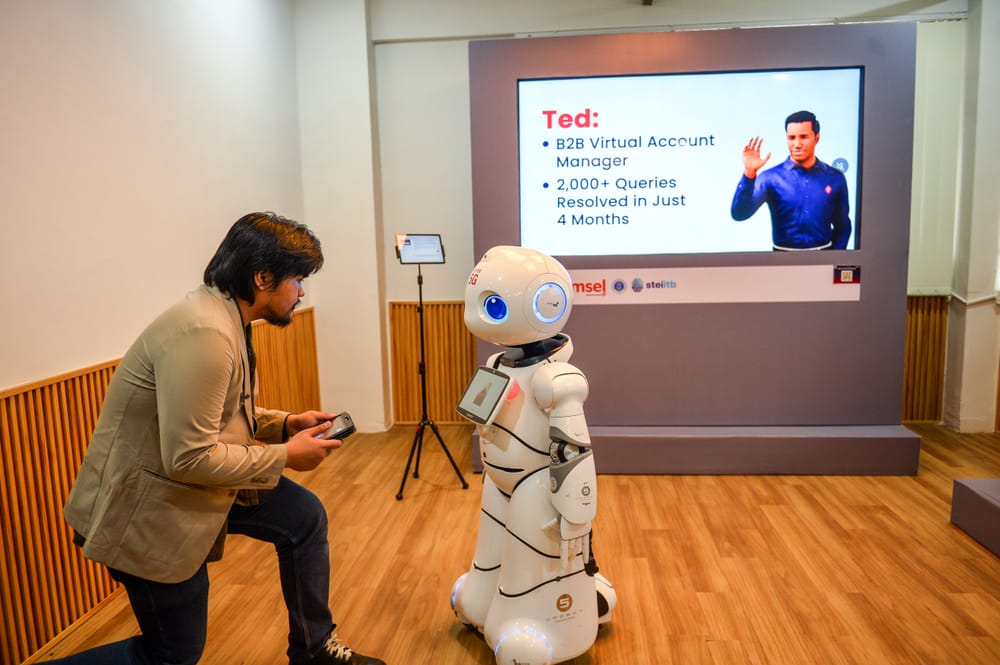Digital literacy is now considered important to anticipate cybercrime along with the increasing risk of fraud and fictitious orders that are increasingly varied.
That is the background of Shopee Indonesia together with the Ministry of Communication and Digital (Komdigi) and Siberkreasi launched the Anticipation of Fraud Modes (AMAN) book as a practical guide to avoid various modes of online fraud in online buying and selling transactions.
"The book summarizes various fraud modes that have been reported by users to Shopee. Shopee will continue to update the contents of the book according to the complaints we receive," Satrya Pinandita, Head of Corporate Affairs Shopee Indonesia told reporters in Jakarta, Wednesday (15/10/2025).
The launch is part of the "TakKenalMakaTakAman" campaign aimed at improving digital literacy.
This book discusses various modes of online fraud and how to avoid them. Among them are ways to protect personal data such as maintaining OTP codes and passwords, as well as the Fact Check feature, which helps users verify suspicious information.
Shopee also added the Extra Aman feature as a guide to recognize various modes of fraud on behalf of Shopee.
"Simply type 'extra safe' in the search field and a list of fraud modes that often act on behalf of Shopee will appear," Dito said.
Some of the modes that have been experienced include:
- Pretending to send an official letter
- Send information using e-commerce logo
- Sent an employee ID - but it was fake
- Phishing links in fake SMS
Digital crime cases in Indonesia are quite high. Referring to data from the Financial Services Authority (OJK), losses due to digital crime from November 2024 to September 2025 reached Rp6.1 trillion.
Global Anti-Scam Alliances (GASA) data shows that 66% of Indonesians have almost been victims of fraud. They were not deceived directly, but had received information that led to fraud.
Common modes include phishing, fake job vacancies, and fraud on behalf of institutions. According to Dito, Shopee's name is often used to trick consumers.
The perpetrators are now attacking from many directions. Based on GASA data, fraud most often occurs via text messages, telephone, and SMS. In the first semester of 2025, Dito said the Fact Check feature had been used more than 250 thousand times by users to report indications of fraud.
Here are some tips to avoid online scams:
- Never provide user OTP or PIN
- All transactions from communicating, transaction processing and product returns are done within the app. This is so that users can avoid fraud that leads outside the platform.
- Diligently read education through monthly newsletters
- Apply 3C (check the sender, check the facts and find out the latest mode)
- Check store reviews and ratings before transacting
- Do not upload receipt photos on online platforms
- Tear up the receipt or cover the address with a black marker before throwing it away
Fraud Modes
Siberkreasi Chairman Donny Budi Utoyo said research by the Center for Digital Society (CfDS) at Gadjah Mada University found 15 types of digital fraud modes, not including those based on artificial intelligence.
"This complexity makes it increasingly difficult for people to distinguish between genuine and fake communications, even for those who are familiar with technology," said Donnny.
Some of the modes that users often encounter include:
- Gift scam
- Sale and purchase of goods
- Illegal investment
- Social engineering that utilizes false proximity.
Donny emphasized the importance of cross-network collaboration between communities, government, media and digital platforms. Siberkreasi now houses more than 120 partner organizations to expand the reach of digital literacy. "Cooperation like this is important so that education about digital security can reach more layers of society," he said.
Rizky Ameliah, Head of Digital Literacy BPSDM Komdigi RI, explained that the government's role is carried out from upstream to downstream. Upstream, Komdigi organizes literacy strengthening training and digital talent development.
In the middle stage, the government works with digital platforms such as Shopee and social media to educate users. While downstream, Komdigi coordinates with law enforcement officials to handle negative content and fraud reports.
"The government cannot go it alone. With a population of 270 million and social media users around 80 percent of the total population, collaboration with various parties is absolutely necessary," Rizki said.
He said Komdigi had provided the complaintkonten.id and cekrekening.id channels so that people could verify information or suspicious account numbers before making transactions.
At the regional level, Komdigi collaborates with local communities as an extension of digital literacy education. A network of digital literacy guides and agents of change are involved to reach out to various professions and remote areas.
Google and Kadin Initiative
On a different occasion, the Indonesian Chamber of Commerce and Industry (Kadin) signed a memorandum of understanding (MoU) with PT Google Indonesia regarding the Empowerment of UMKM and the Development of Google Content Creators through the YouTube Platform which took place at Menara Kadin Indonesia, Jakarta, Wednesday (15/10/2025).
The event was attended by Kadin Indonesia Chairman Anindya Novyan Bakrie, Kadin Indonesia Deputy Chairman for Communication and Digital Clarissa Tanoesoedibjo, YouTube Indonesia Country Head Suwandi Widjaja, and Google Cloud Indonesia Country Director Fanly Tanto.
Anindya sees this collaboration as an important step in expanding market access and accelerating digital transformation for UMKM across Indonesia. "This is what I think can be done with technology, with YouTube and Google increasing scale, expanding reach, and integrating UMKM in the global supply chain," Anin said.
Anin added that this collaboration is expected to not only stop at the signing of the MoU, but also be implemented immediately. "My hope is that this collaboration can start with 500 UMKM and grow to 5,000 or even 50,000 UMKM. Because we know that the number of micro and UMKM in Indonesia reaches 60 million," Anin continued.
Meanwhile, Country Head of YouTube Indonesia, Suwandi Widjaja, said that this collaboration is part of YouTube and Google's long-term commitment to encourage the growth of the creative economy in Indonesia. "We are very excited. We hope that this collaboration is not just a ceremony, but a long-term commitment between YouTube, Google, and Kadin. Our passion is the same, namely advancing the creative economy and UMKM in Indonesia," he said.







